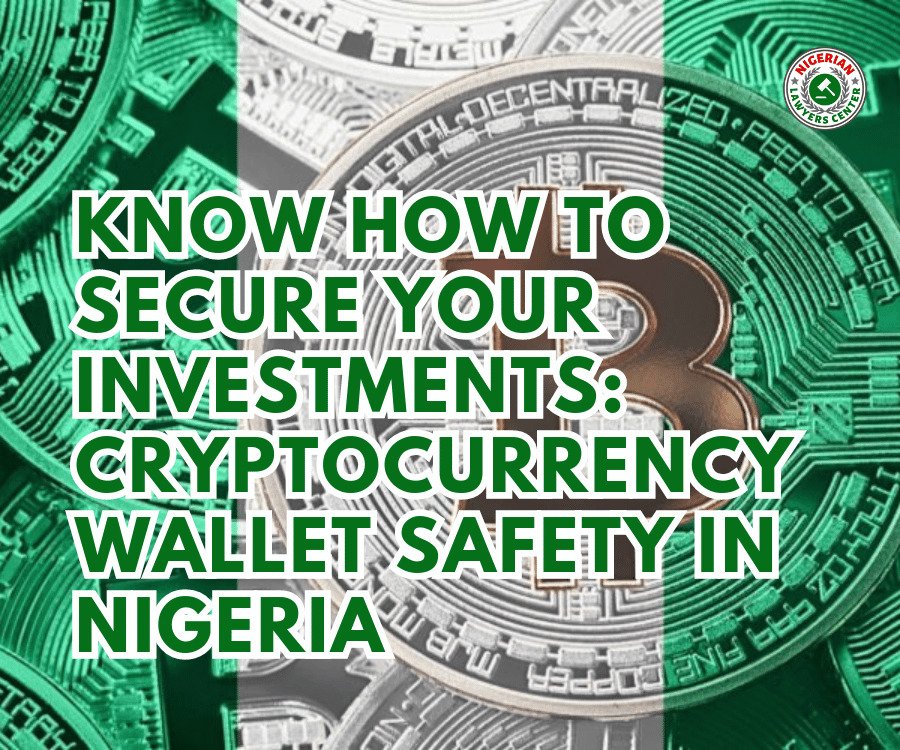The surge in cryptocurrency investments has brought about a vital need for secure storage and management of digital assets. As Nigeria embraces cryptocurrencies, it’s essential for investors to understand the significance of cryptocurrency wallet safety. In this comprehensive guide, we will delve into the best practices and strategies for securing your cryptocurrency investments in Nigeria.
The Importance of Wallet Safety
Cryptocurrency wallets play a pivotal role in the crypto ecosystem. They are digital tools designed for the storage, sending, and receiving of cryptocurrencies. As the owner of these assets, it is your responsibility to ensure the safety and security of your wallet to protect your investments.
1. Types of Cryptocurrency Wallets
Before we explore wallet safety, let’s first understand the two main types of cryptocurrency wallets:
a. Hot Wallets: These wallets are connected to the internet and are ideal for easy access and frequent transactions. However, they are more vulnerable to online threats.
b. Cold Wallets: Cold wallets are offline storage solutions that provide a high level of security. They are best suited for long-term storage and safeguarding larger investments.
2. Use Strong Passwords
Regardless of the type of wallet you choose, it’s crucial to use strong and unique passwords. Avoid using easily guessable combinations and opt for a mix of upper and lower-case letters, numbers, and special characters. Password managers can help you keep track of complex passwords.
3. Enable Two-Factor Authentication (2FA)
Most cryptocurrency wallets and exchanges offer 2FA as an added layer of security. By enabling 2FA, you ensure that even if someone gains access to your password, they would still need a second form of verification to enter your wallet.
4. Keep Your Private Keys Secure
Private keys are the keys to your cryptocurrency kingdom. Never share your private keys or store them in a location where they can be easily accessed. If you’re using a cold wallet, make sure to have a physical backup and store it in a safe place.
5. Be Wary of Phishing Attempts
Phishing scams are common in the cryptocurrency space. Be cautious of unsolicited emails, messages, or links that ask for your wallet information. Always verify the legitimacy of the source before providing any details.
6. Regularly Update Your Wallet Software
Wallet providers release updates to patch security vulnerabilities. It’s essential to keep your wallet software up-to-date to benefit from the latest security improvements.
7. Use Encrypted Wi-Fi Networks
When accessing your wallet or making transactions, use secure, encrypted Wi-Fi networks. Avoid using public Wi-Fi networks that may be less secure and more vulnerable to hacking attempts.
8. Back Up Your Wallet
Regularly back up your wallet to ensure that in case of device loss or malfunction, you can still recover your assets. Follow the specific backup instructions provided by your wallet provider.
9. Diversify Your Investments
Rather than storing all your assets in a single wallet, consider diversifying across multiple wallets. This strategy minimizes the risk associated with a single point of failure.
10. Stay Informed
The cryptocurrency landscape is dynamic, and new threats and security measures emerge regularly. Stay informed about the latest security practices and threats to keep your investments safe.
Conclusion
In the world of cryptocurrencies, security is paramount. Safeguarding your investments by ensuring the safety of your cryptocurrency wallet is not only prudent but necessary. Whether you opt for hot wallets for convenience or cold wallets for added security, following these best practices can help protect your digital assets in Nigeria’s evolving cryptocurrency landscape. Remember, it’s your responsibility to secure your investments, and these measures are key to achieving that goal.
